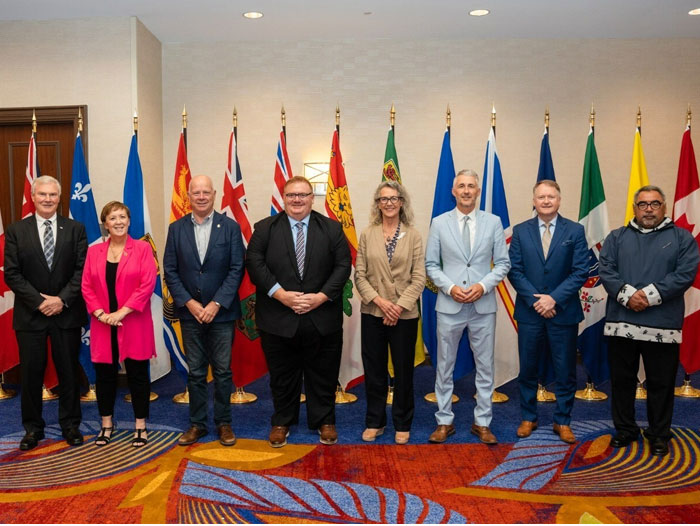Canadian Council of Fisheries and Aquaculture Ministers Working Together to Protect Fisheries and Aquaculture Sector in Canada
July 14, 2023 | 2 min to read

OTTAWA, ON – The Canadian Council of Fisheries and Aquaculture Ministers (CCFAM) met on June 27 and 28, 2023 in Ottawa, Ontario. Ministers discussed working together on managing the threat of aquatic invasive species, continuing to support the sustainability and economic well-being of the fish and seafood sector, and safeguarding the future of fish, fish habitat, fisheries and aquaculture in a changing climate.
The Minister of Fisheries, Oceans and the Canadian Coast Guard, the Honourable Joyce Murray, and the Minister of Natural Resources and Forestry for Ontario, the Honourable Graydon Smith, co-chaired the meeting, which was attended by their provincial and territorial counterparts and representatives.
Ministers discussed their respective aquaculture priorities. Minister Murray reiterated that the implementation of a federal plan to transition from open-net pen salmon farming in coastal British Columbia waters will not extend to Eastern Canada, where provinces are the lead regulators for the management and development of aquaculture. Minister Murray expressed her support for a sustainably managed aquaculture industry, and recognized that aquaculture is a legitimate user of the waters in Eastern Canada.
The federally adopted Kunming-Montreal Global Biodiversity Framework was presented to Ministers, specifically, aquatic ecosystems elements of the framework, such as marine conservation, aquatic invasive species (AIS), and climate change. Ministers discussed the importance of early engagement and collaboration with provincial and territorial jurisdictions, Indigenous communities, and industry.
To prevent and mitigate AIS, Ministers agreed that revitalizing CCFAM’s 2004 Canadian Action Plan to Address the Threat of Aquatic Invasive Species is needed. The updated Action Plan identifies gaps in AIS-management policy and provides recommended actions related to governance, data sharing, risk prioritization, response and biosecurity. Ministers agreed to work collaboratively to advance these recommended actions to help safe-guard Canada from aquatic invasive species.
Ministers reaffirmed that CCFAM is an important venue for working together to promote sustainable economic growth of Canada’s fish and seafood sector. Ministers agreed to extend the Economic Development Task Group for another term, highlighting the importance of food security, particularly to Indigenous communities, market diversification, reducing fish by-product waste through greater fish utilization, and promoting Canadian fish and seafood, domestically and internationally.
Finally, as a follow up to their November 2022 meeting in Winnipeg, Manitoba, Ministers continued important discussions on the impact climate change is increasingly having on Canadian marine and freshwater ecosystems, in particular, the impacts on fish, fish habitats, aquaculture, and fisheries. Ministers agreed that the Committee on Climate Change support marine and freshwater fisheries and aquaculture in this changing environment, underscoring the importance of timely action.
In a separate pre-session, Ministers met with representatives from National Indigenous Organizations. Discussions focused on strengthening relationships, and inclusion of Indigenous community rights and perspectives in all matters related to fisheries and conservation of aquatic ecosystems.
